If you’re joining us just now, follow the snake’s tail to the Prologue or climb a ladder to the Table of Contents.
Chapter 4: The Planet of Satcitananda
Evan had been asleep on his red-eye flight to La La Land for less than five minutes. And although he had already experienced a great deal, he had still not quite made it through the vestibule of the dream. The singularity knew that Evan was still grieving over Levi, and that he wanted to make up for what he had done wrong.
“There’s still time,” Evan said.
“The deeper you fall into this dream,” the unborn universe replied, “the more you will understand what you must do to change what you have already done. But for now, enjoy the ride as we bob, dinghy-like, down the mist-clad miles of your delta waves.”—And a foghorn sounded in the distance, as the airplane lurched in the turbulence.
The canned laughter was having the time of its life, because, even though the four friends were no longer sitting in that gray diner on the Astral Plane, they were still trapped in America’s favorite sitcom.
Evan and Levi concluded their fraternal embrace. And Evan noticed that Levi was now sitting on his right side.
“I’m your right-hand man,” Levi said, and he turned away to hide his blush.
The four friends sat around a conference table at Caltech. Niyati wore trendy glasses and was at the head of the table, because she was the game master. An auburn-black cardboard screen was open in front of her like a triptych, and on each panel was one of the three faces of Brahma. The screen hid a rulebook, which Niyati kept referring to in a furtive manner. There was something in it that she didn’t want the players to see.
Astronomy charts and diagrams lined the walls of the conference room. Between these were the oval-shaped viewports of the spaceship they were riding in, which was passing through a salmon-pink nebula. The crew had assembled in the conference room to discuss what to do about the unborn universe in Evan’s Bermudas.
“This is fun,” Levi remarked. “I’ve never played a role-playing game on the Astral Plane.”
Niyati told them that role-playing games were generally abbreviated RPG—capital “R”, “P”, “G”.
“I’m not that dumb,” Evan said.
“RPG,” Gordon mused, as he stroked his prophetic auburn-black beard.
“This RPG,” Niyati explained, “is science-fiction themed.”
Evan had never heard of an RPG, but somehow understood the rules to this one. He enunciated the letters “R”-“P”-“G” derisively under his breath, shaking his head. He had been an athlete in high school, a wrestler. It was only nerds who did shit like this.
Gordon heard what Evan had been thinking, and told him that therapists and psychiatrists played RPGs with their patients, and that the patients often became so enamored by the masks they wore during these sessions that the masks became more real to them than the faces they concealed.
“The word persona,” Niyati said, “is the ancient Latin word for a mask. It originally meant ‘that through which (per) sound (sona) travels’.”—And Evan heard the hissing Himalayan winds pervade the room as two monks from Shambhala, who were wearing masks, held another false face between them.
“So the masks are like the three personages of the godhead?” Levi asked.
“Exactly,” Niyati acknowledged. “But you forgot to capitalize ‘God’s Head’, Levi.” And the three faces of Brahma nodded gravely.
Evan liked this RPG, because he was a Captain (capital “C”) in charge a starship belonging to the United Galactic Council of Galactic Unity, abbreviated UGCGU (all in caps).
Levi was Evan’s loyal friend and chief advisor.”
“Technically,” Levi noted with a wistful grin, “I’m both a Minister and a Chief Advisor, and I should be addressed in capital letters. But only if you don’t mind, Evan. I couldn’t bear to lose my friend again.”
Gordon wore many masks aboard the USS Shambhala. He was a farmer who grew alien vegetables in a holographic garden located on Deck rBtZ (lowercase “R”, uppercase “B”, lowercase “T”, uppercase “Z”). As a merchant, he peddled his produce in his spare time, knocking on each crew-member’s door, like an Amway salesman.
“If money doesn’t exist in this world,” Evan said. “Why does Gordon have to sell stuff?”
Niyati laughed silently. But the canned laughter filled the silence with her mirth.
Gordon’s interactions with the other members of the crew were emotionally poignant. In fact, it was Gordon alone who had saved the sitcom from being canceled.
“A non-player character,” Niyati explained, “is called an NPC (uppercase ‘N’, ‘P’, ‘C’). They are called non-player characters because they don’t exist in this world.”
“But they exist on the plane of non-being,” Gordon noted.
Each of the NPCs that appeared in America’s favorite sitcom was deftly acted out by Niyati. She became those souls we pass in the day, but who sometimes revisit us in our dreams at night.
Evan didn’t begrudge the fact that viewers liked Gordon’s character more than his, since Evan’s character was a bit of an asshole. And Evan had to admit that Gordon was a great guy, a clown with a serious side to him and a depth of character borne of undisclosed hardship. It was explained in the first season that Gordon was the sole survivor of a bombed-out bauxite mine on Gavaarak-5.
“I’m one of a kind,” Gordon would say—and his lead figurine would weep in anguish.
Gordon was also the ship’s shaman. And when called upon to act out this role, he would don his powder-blue mantle and stride through the starship’s corridors with a face like Elijah’s. It was undoubtedly due to Gordon’s profound spirituality that the show’s ratings had climbed up the ladder and down the snake’s tail.
Evan said something uncharacteristically articulate: “Before we play this RPG, I’m putting the kibosh on any further talk of uppercase and lowercase letters. It’s unnecessary going forward.”
Levi suggested simplifying matters by referring to abbreviations as “abbr”s and lowercase and uppercase letters as “lc”s and “uc”s, respectively. Niyati, who had devoted much of her life to the study of symbolic and mathematical notation, thought this an excellent idea. But Evan warned them that he would stop playing the game if they continued to make things that were clear seem obscure.
“Another thing,” Evan said. “It feels like everyone in this phase of my dream is talking portentously and with elevated diction, like we’re in a realm of Jungian archetypes or engaged in a ayahuasca-induced vision-quest.—And, although I really don’t know what any of what I just said means, I thought I’d let guys know that I’m putting my foot down as of now.”
Then he turned to Niyati: “You keep trying to force rules down my throat. Well, this is my dream too, so I’m making rules of my own.”
The canned laughter cackled ominously, as Madame Blavatsky’s face appeared in one of the spaceship’s window-ports—and then appeared in all of them. She studied Evan with interest before drifting away into the salmon-pink nebula which became auburn-black as her astral form vanished into it.
Each of the player characters rolled one of the polyhedral dice lying on the table. The players wrote down their qualities and attributes on a piece of graph paper in front of them. The original rules had stipulated that the qualities must mirror the Aristotelian categories, but Evan didn’t have the patience to learn what those were, so Niyati dumbed the game down for him.
As Gordon filled in the boxes representing his qualia, his tongue kept sticking out of the corner of his mouth. He seemed like a little boy who was trying to recapture an innocence he had lost. Niyati regarded him sympathetically.
Gordon rolled a 400 for both “Fortitude” and “Wisdom” on the twelve-sided die. And Levi rolled the same for “Compassion” and “Loyalty”. Then the canned laughter laughed, because Evan rolled ones for all of these.
But Levi objected to this. He said it wasn’t fair, and out of love for Evan, he changed his roommate’s scores to 12, since this was the highest anyone could roll on the twelve-sided die.
“Thanks, buddy.” Evan said, and tears brimmed in Levi’s eyes.
Suddenly, the slow-motion gumminess of the earlier segments of the dream began to speed up. A spontaneous vigor filled Evan’s veins.
“I must have finally fallen into REM sleep now!” Evan said. “Because I can finally talk normally, instead like I’m underwater.”
“Oh, wow!” Gordon said. “Me too!”
“Me three!” Levi piped in.
But Niyati continued to speak like she was in a dream, since she was the game master.
“You have arrived at an asteroid in the Garanapoid Sector,” she said. “Your scanners have detected a heat signature hundreds of miles beneath the asteroid’s surface. After conducting further analysis, you discover an isolated spore in a cavern deep inside the core of the asteroid. Exactly one million and one years ago, this lonely spore became self aware. But having no other sentient being to share this revelation with, the spore has spent the last one million years since doubting whether it is in fact self aware.”
“Interesting question,” Gordon said. “Does consciousness exist?”—And the canned laughter laughed.
“I don’t think it’s right for us to disturb it,” Levi said. “Think about it! We’d be disrupting the natural course of its evolution. . . But I sure do feel sorry for the little fella. I know what it’s like to ask questions that no one ever gets back to you on.”
Evan spoke authoritatively and said “Chief Advisor Levi,” and then he paused and laughed, because he had no idea what a United Galactic Council of Galactic Unity starship captain was supposed to do in a situation like this. So he tried to look solemn, and he kept repeating “Chief Advisor Levi”—and Gordon and Niyati leaned in expectantly but Levi was laughing hard because he knew Evan didn’t have a plan and he loved the way his best friend winked conspiratorially at him, because it meant that Evan really and truly liked him, and that they were brothers.
Then abruptly Evan said, “Merchant-Farmer Gordon, turn on the ship’s dorsal hypersensitivity drives and take us there.”
Evan pointed to a black globule on the star chart behind Niyati’s right shoulder.
“You want to go there?” Niyati asked.
“Yeah,” Evan said (like he gave a shit).
Niyati looked at the black globule over her shoulder and spoke with an amplified godlike voice that caused each of the lead figurines on the graph paper to tremble.
“If a beam of light were to enter the Ovoötes Void, it would take it 330 million light years to traverse its breadth. It is a nighted vacuum populated by a race of scholars, who have lived there since the Milky Way was new. They are called the Grand Watchers. They do not reproduce, they simply grow. They see all things, hear all things, remember all things, including those things that have never happened nor ever will. Over the portal of their academy is a quotation from the great philosopher Utalpo, which reads: ‘Absolute clarity is attainable only in absolute darkness.’—And although the Grand Watchers know everything about each and every one of us, they find us uninteresting at this moment, but they will find us interesting at that moment when that moment comes.”
“Sounds like a boring place,” Evan said. “I’m just drivin’. You guys decide where you wanna go.”
“If that’s how you feel,” Niyati said irritably, “then I shall transport you down the serpent’s back through a wormhole.”
She rifled through the pages of the campaign module and Evan noticed that the graph paper scattered on the conference table had become the Snakes and Ladders game board, and the lead figurines had morphed into the white, red, yellow, and black game pieces.
Evan studied the white playing piece that represented the brahman.
“I thought you were an NPC in this game,” he said looking up at Niyati.
She ignored him. And the three faces of Brahma vanished from the game master’s screen.
“Your spaceship,” Niyati said, “is orbiting the arid desert planet of Satcitananda, which is located in the Andromeda Galaxy. I wrote a monograph about it during my residency at MIT. But my work was never published on the planet Earth because I wrote the manuscript while I dreamed that I was in an ancient university library in the Canadian Colony of Norway.”
The canned laughter groaned and Evan rolled his eyes.
“The denizens of Satcitananda,” Niyati resumed, “are living embodiments of Absolute Time. And within their cities there is much strife. For the Present scorns the Past, the Past rebukes the Present, and the Future arbitrates between the twain. A political bloc has formed in an effort to unite the opposing factions into a coalition, which would consist of a single moment in time. The political bloc has argued that ‘single moment-hood’ was the Satcitanandans’ original state of nature, and that everything that has come after that past state—if after is the correct preposition to use—is a degradation and diachronic veil cast over the three aspects of Brahma, i.e. ‘being’ (sat), ‘spirit’ (cit), and ‘happiness’ (ananda).”
“The fuck?” Evan said, throwing his pencil on the table.
“The theory,” Niyati continued, “is currently (ha-ha) being debated in the Satcitanandan General Assembly; and, when I say currently, I mean ‘from time to time,’ which is tantamount to saying always.”
Evan and Gordon were looking at each other in confusion, but Levi said that it all made sense to him. “I know what it’s like,” he said, “to be trapped in a Past yearning for a Future that the Present stands in the way of.”
The blue-faced Satcitanandans approached the alien newcomers, moving in every direction and pervading every dimension all at once and at the same time, with the exception of that fleeting moment preceding the moment they were currently traversing. And they did all these things rather slowly and with a speed that surpassed the speed of light.
“It’s your move,” Niyati said.




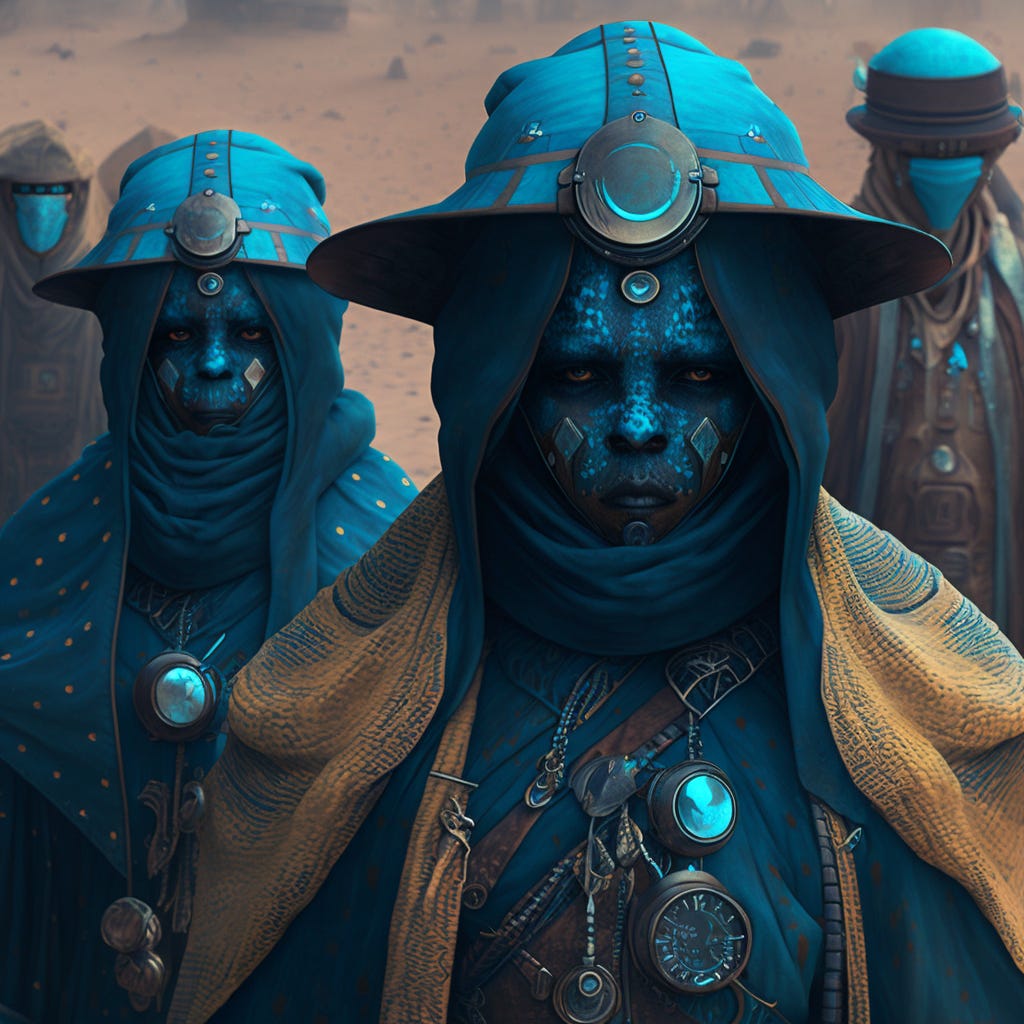



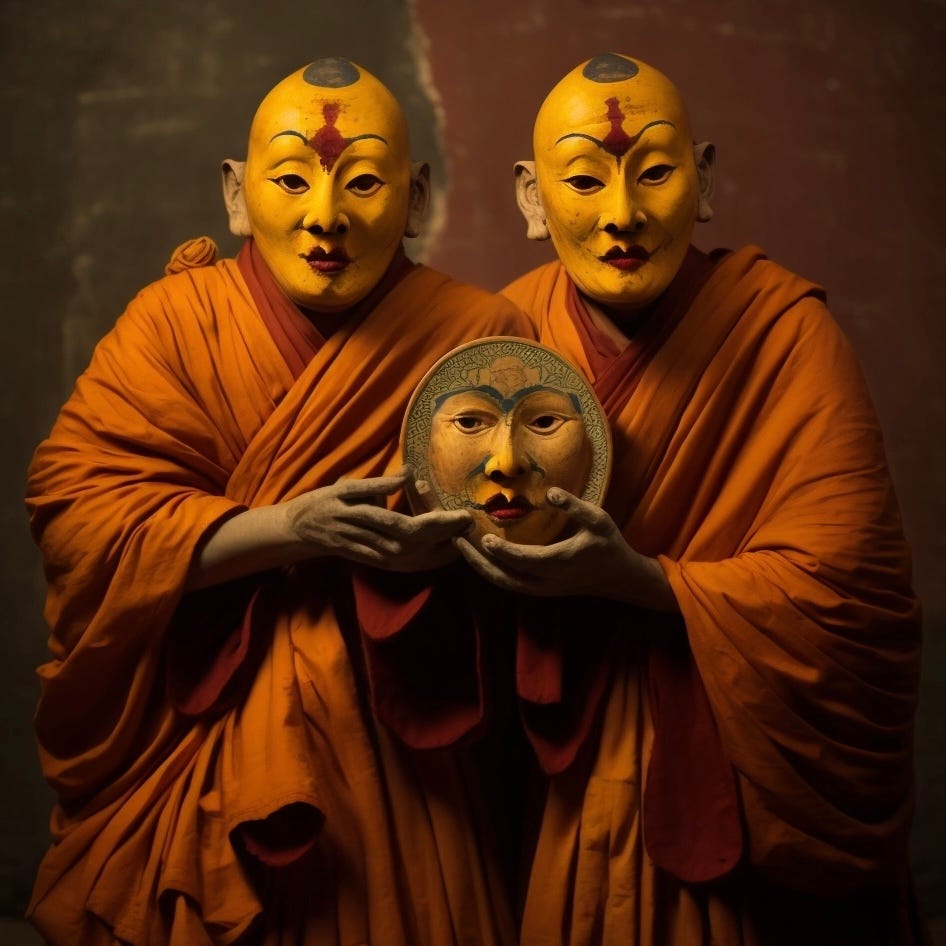
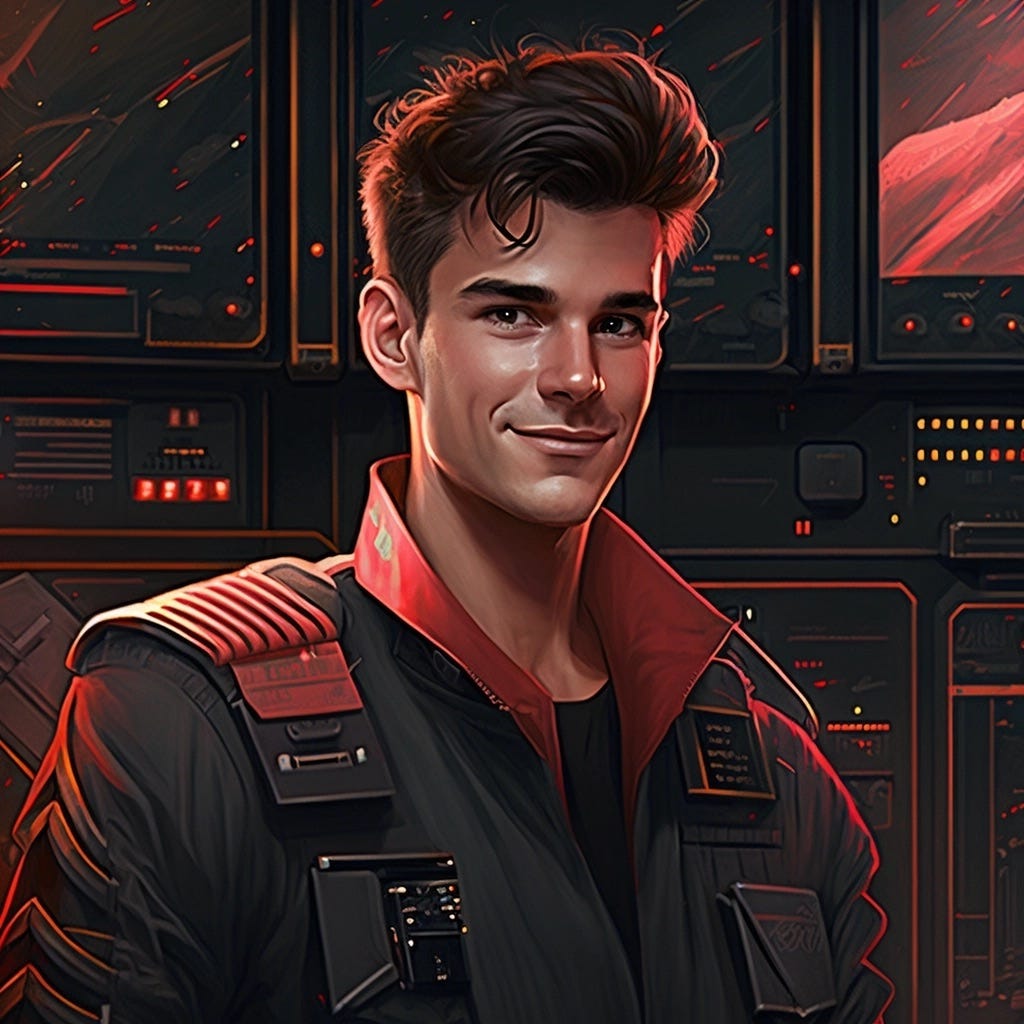
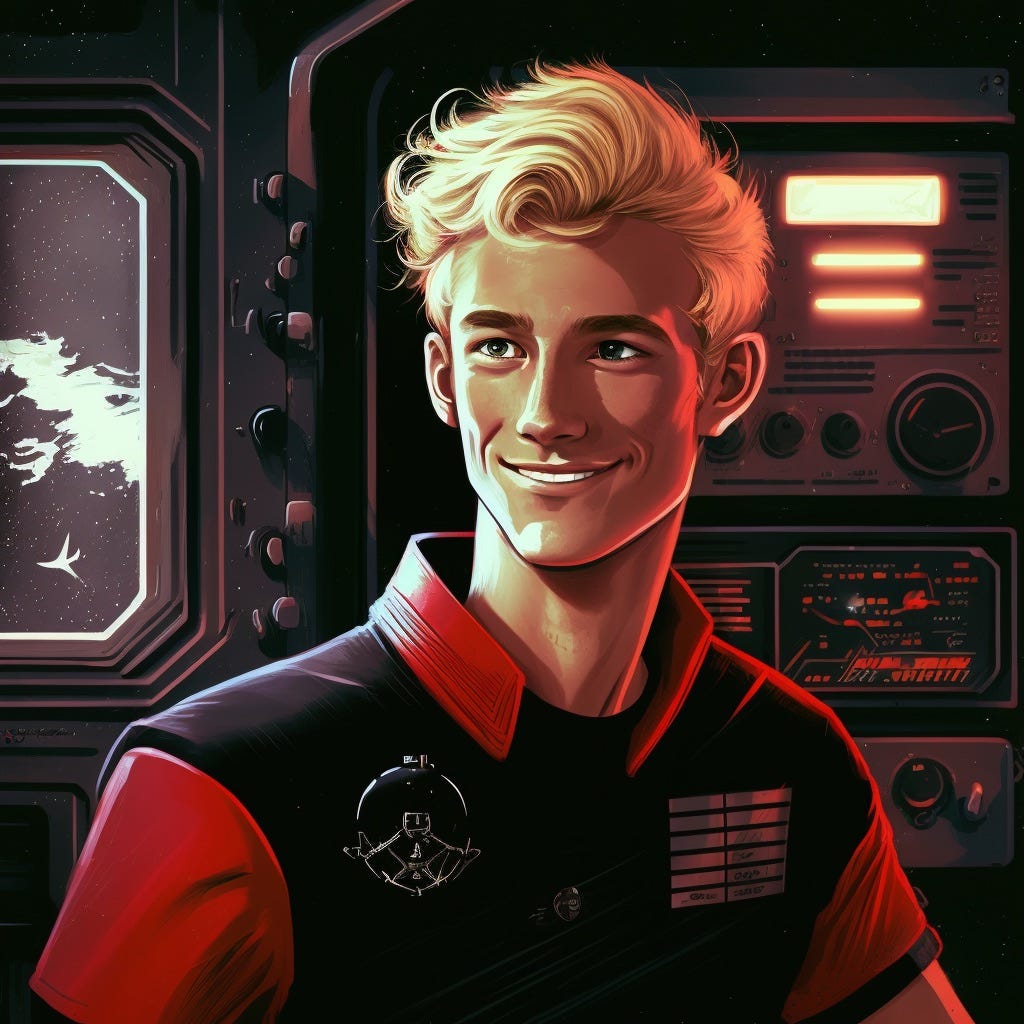
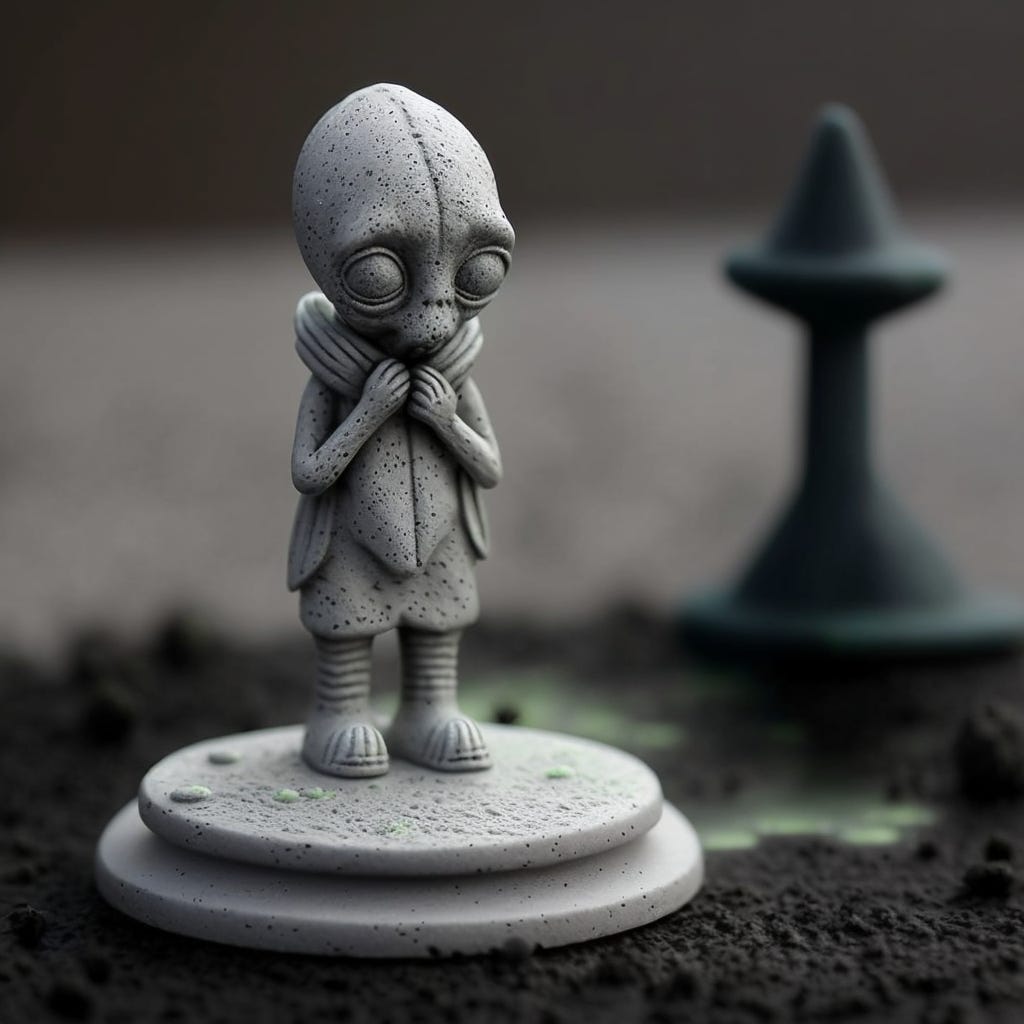


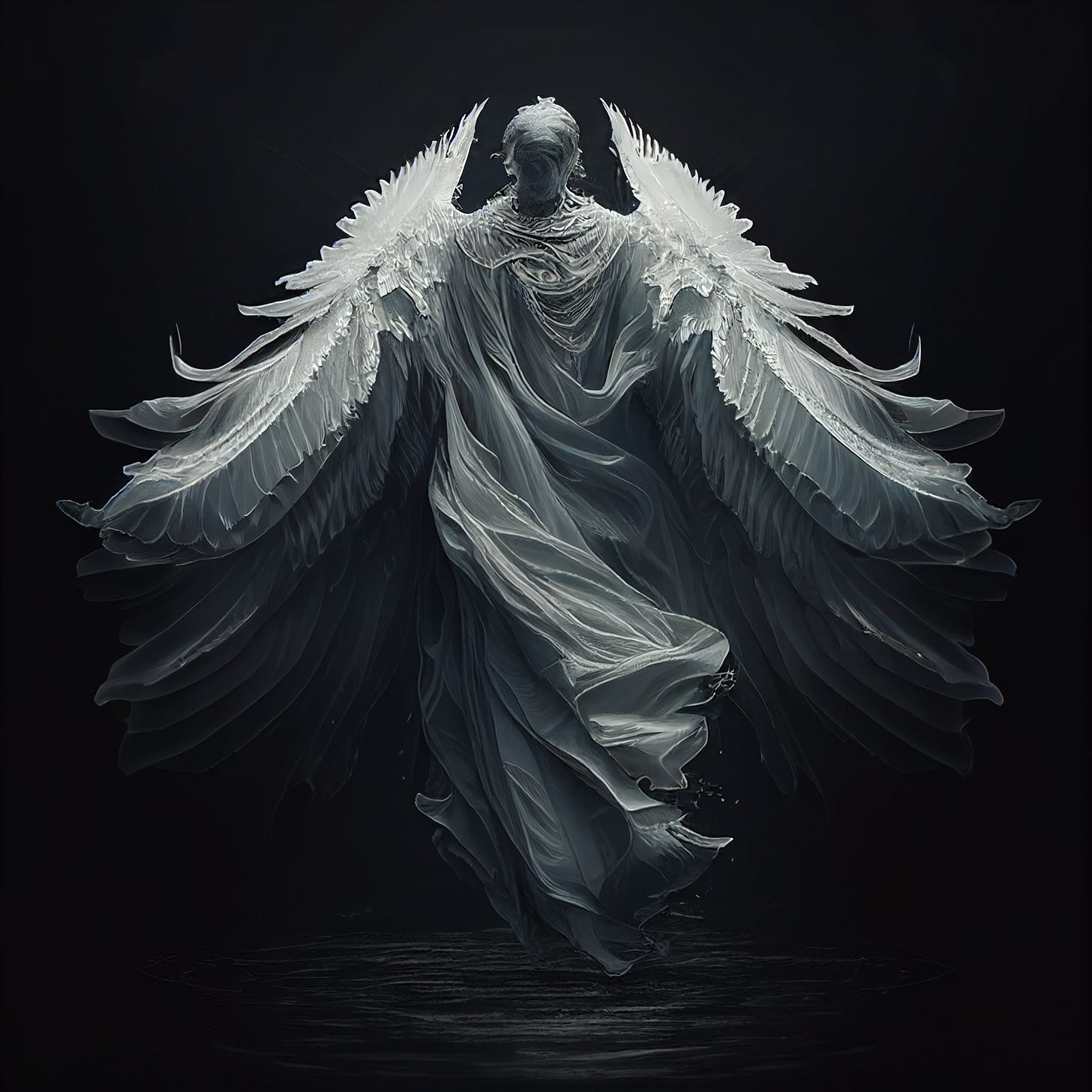
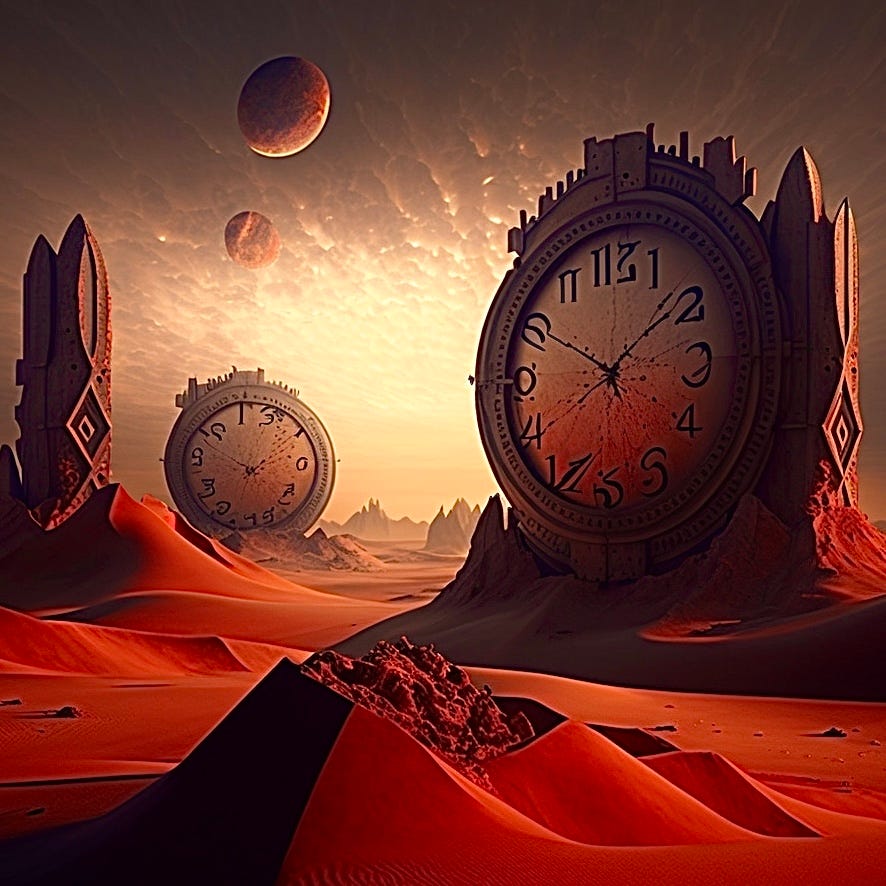
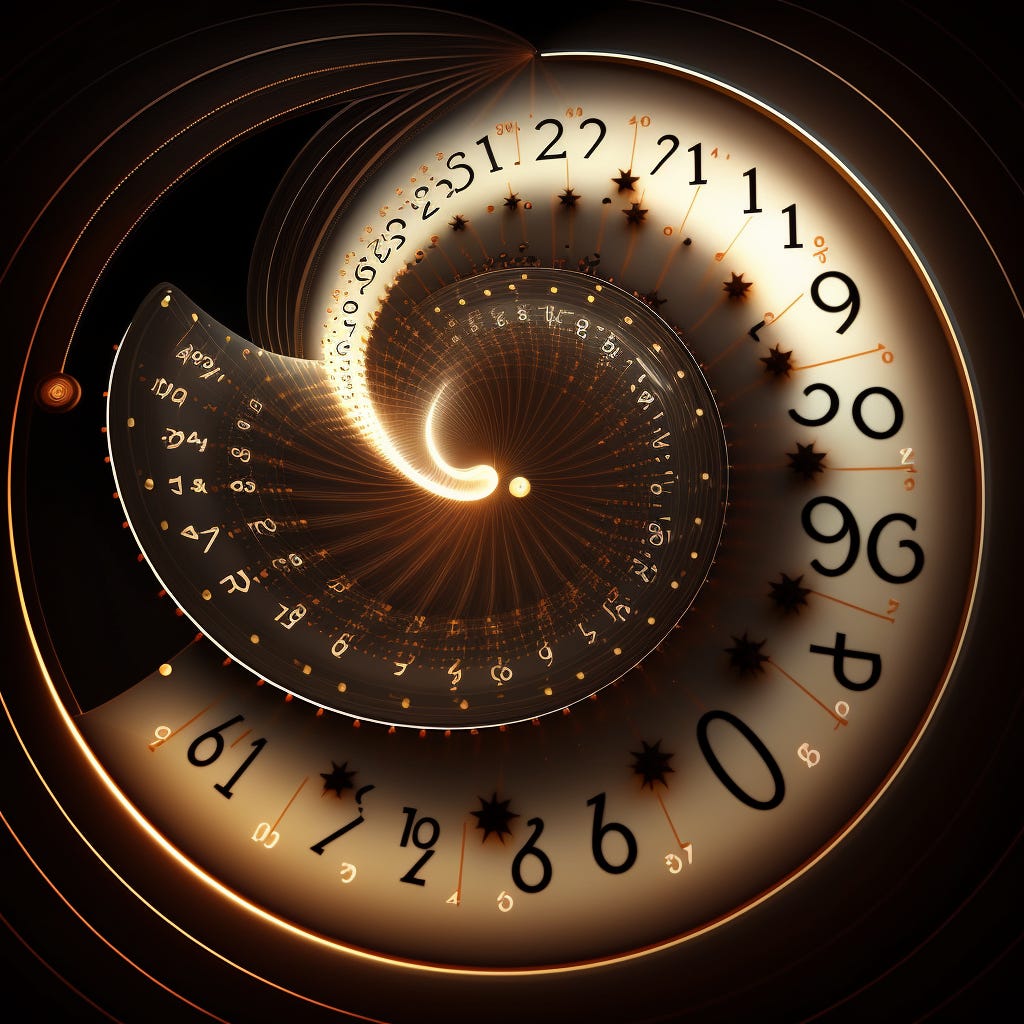
Another wild, trippy ride! I'm enjoying the novels ways you integrate Hindu philosophy throughout.
I like the 'snake' and 'ladder' navigation prompt at the beginning. Very cool 😎